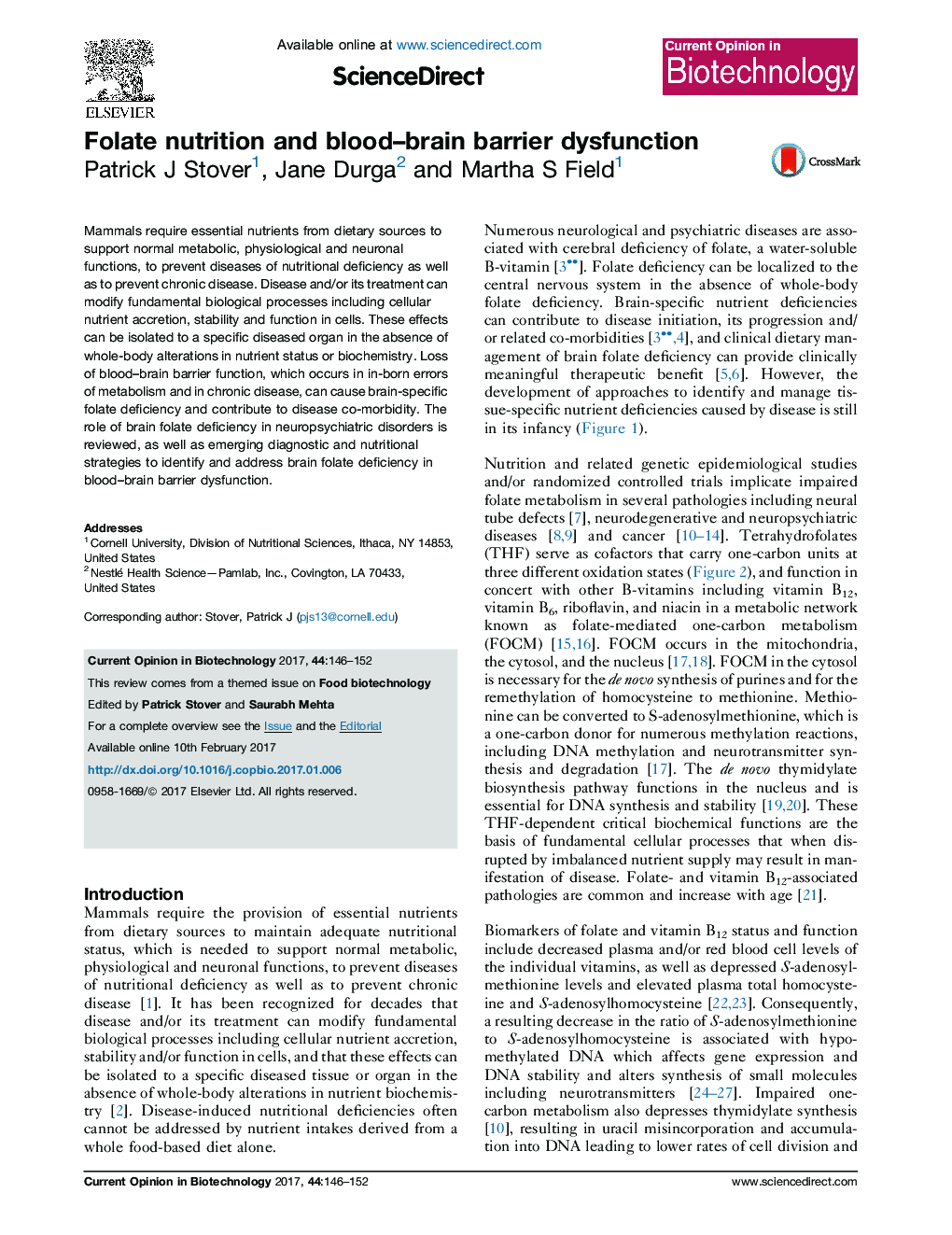| Article ID | Journal | Published Year | Pages | File Type |
|---|---|---|---|---|
| 6451556 | Current Opinion in Biotechnology | 2017 | 7 Pages |
â¢Tissue-specific nutrient deficiencies occur without whole-body deficiencies in disease.â¢The brain concentrates folate across the blood-brain barrier.â¢Blood-brain barrier dysfunction in chronic disease results in brain nutrient deficiencies.â¢Brain folate deficiency contributes to neuropsychiatric disease.â¢Diagnostic advancements are needed to identify brain-specific nutritional deficiencies.
Mammals require essential nutrients from dietary sources to support normal metabolic, physiological and neuronal functions, to prevent diseases of nutritional deficiency as well as to prevent chronic disease. Disease and/or its treatment can modify fundamental biological processes including cellular nutrient accretion, stability and function in cells. These effects can be isolated to a specific diseased organ in the absence of whole-body alterations in nutrient status or biochemistry. Loss of blood-brain barrier function, which occurs in in-born errors of metabolism and in chronic disease, can cause brain-specific folate deficiency and contribute to disease co-morbidity. The role of brain folate deficiency in neuropsychiatric disorders is reviewed, as well as emerging diagnostic and nutritional strategies to identify and address brain folate deficiency in blood-brain barrier dysfunction.
Graphical abstractDownload high-res image (155KB)Download full-size image
